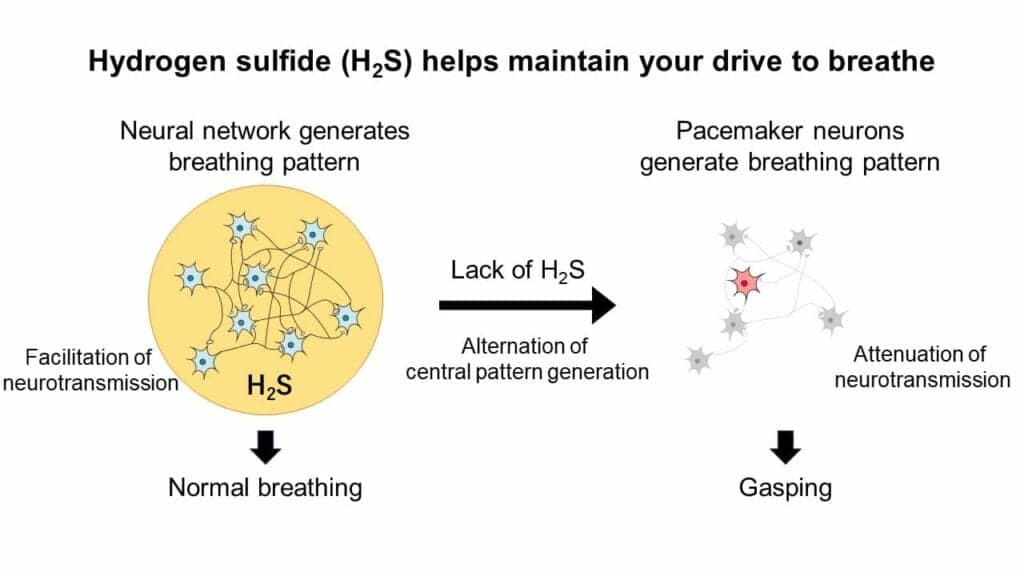A Hydrogen Sulfide Discovery in Rats Could Lead to New Treatments for Central Sleep Apnea
Effective regulation of breathing pattern is essential for many different mammalian processes such as energy production, metabolic regulation, and even speech. Researchers have recently discovered that the body’s production of hydrogen sulfide is important to generate a normal breathing pattern, potentially leading to new treatments for people with breathing disorders such as central sleep apnea.
This result may seem surprising at first given that exposure to high levels of hydrogen sulfide can be toxic to mammalian health. But hydrogen sulfide is produced in small quantities in the body by an enzyme called cystathionine β-synthase (CBS) and is believed to act as a bioactive gas to regulate different body functions. Cystathionine β-synthase is located in both the brain and in peripheral systems including arteries, veins, and kidneys.
In a study published in Communications Biology, researchers from the University of Tsukuba further investigated the role of hydrogen sulfide as a bioactive gas in the body. First they looked at the effect of inhibiting the activity of the CBS enzyme in rats, thereby inhibiting the production of hydrogen sulfide. They found that this resulted in a change in the breathing patterns of the rats from a normal pattern to a gasping pattern. From this, the researchers concluded that the production of hydrogen sulfide allows the regions of the brain that are responsible for controlling breathing patterns to function normally.

Breathing normally requires cells located throughout the body to sense internal levels of oxygen and carbon dioxide and communicate this information to specific brain regions that control breathing rate and pattern. To determine how the different areas of the body are affected by hydrogen sulfide, researchers used different compounds to selectively block the production of hydrogen sulfide in the brain or in peripheral cells.
“Hydrogen sulfide produced by CBS enables neurons located in the brain regions that regulate breathing to communicate,” says Tadachika Koganezawa, professor and the senior researcher on the study, in a release. “Without hydrogen sulfide, the centers of the brain responsible for controlling breathing were not able to maintain the neural network to generate normal breathing pattern.” The researchers found that these effects were specific to the brain, as inhibition of hydrogen sulfide in peripheral cells had no effect.
By unraveling the effect of hydrogen sulfide in the brain centers that control breathing, researchers can now begin to explore the potential role of hydrogen sulfide in disorders that affect breathing such as central sleep apnea or hyperventilation.
Photo 84010004 © Ibreakstock – Dreamstime.com
from Sleep Review https://ift.tt/3oE8T2G


Post a Comment